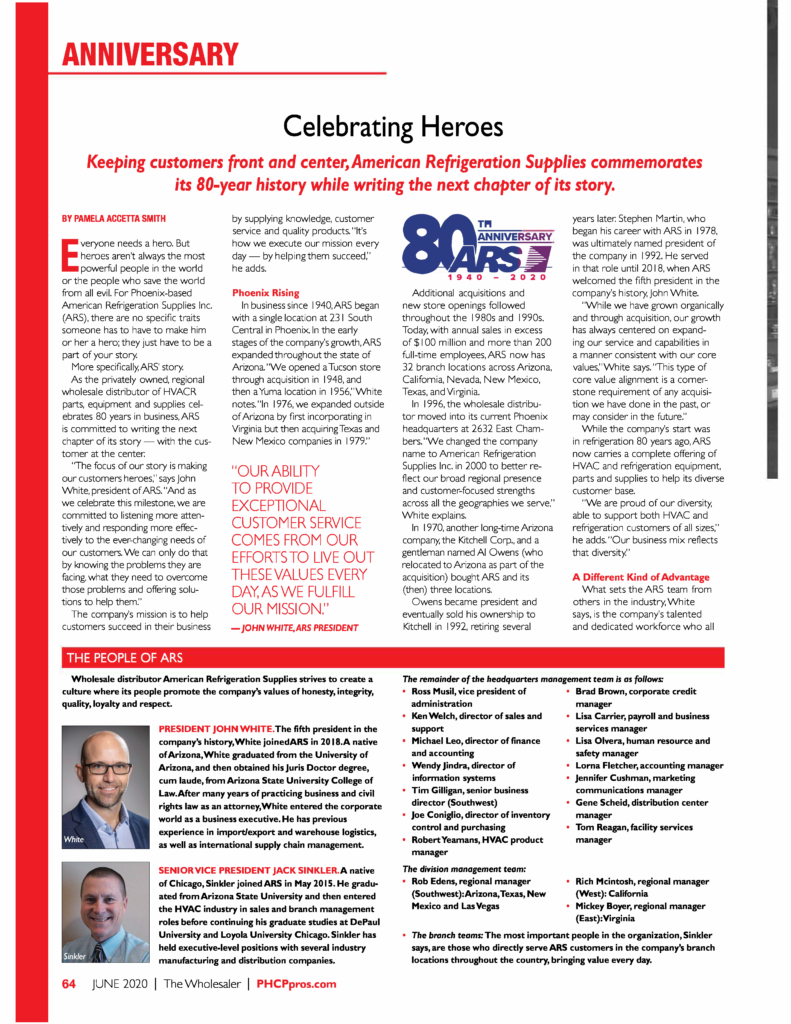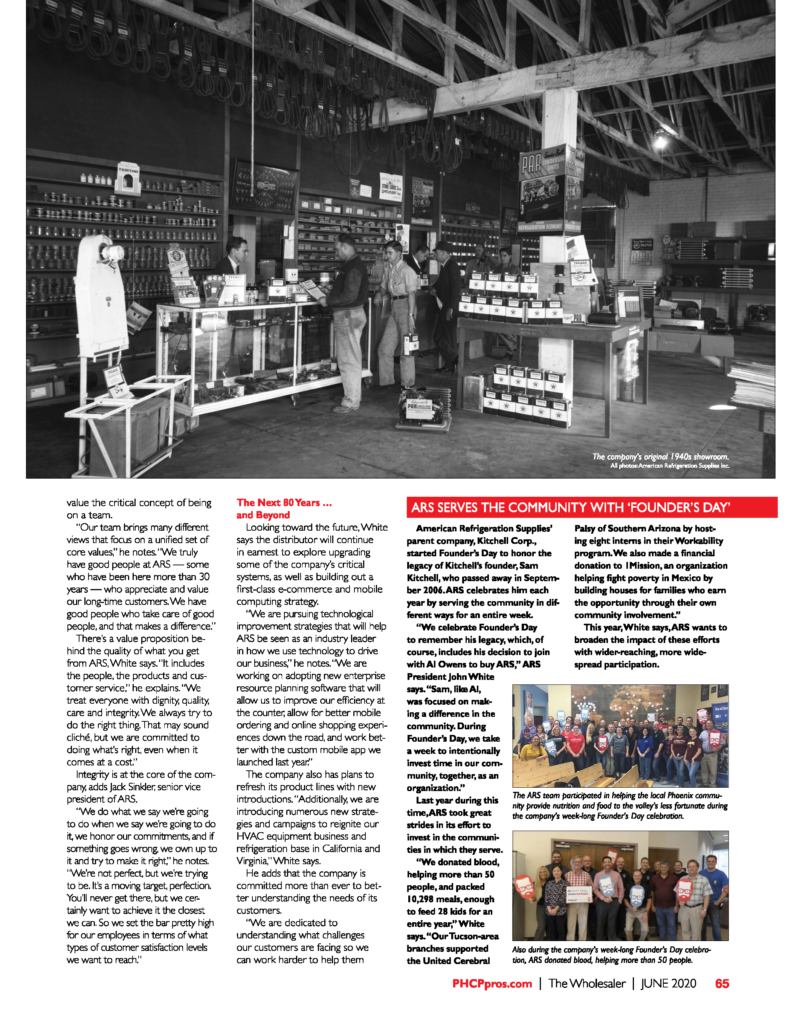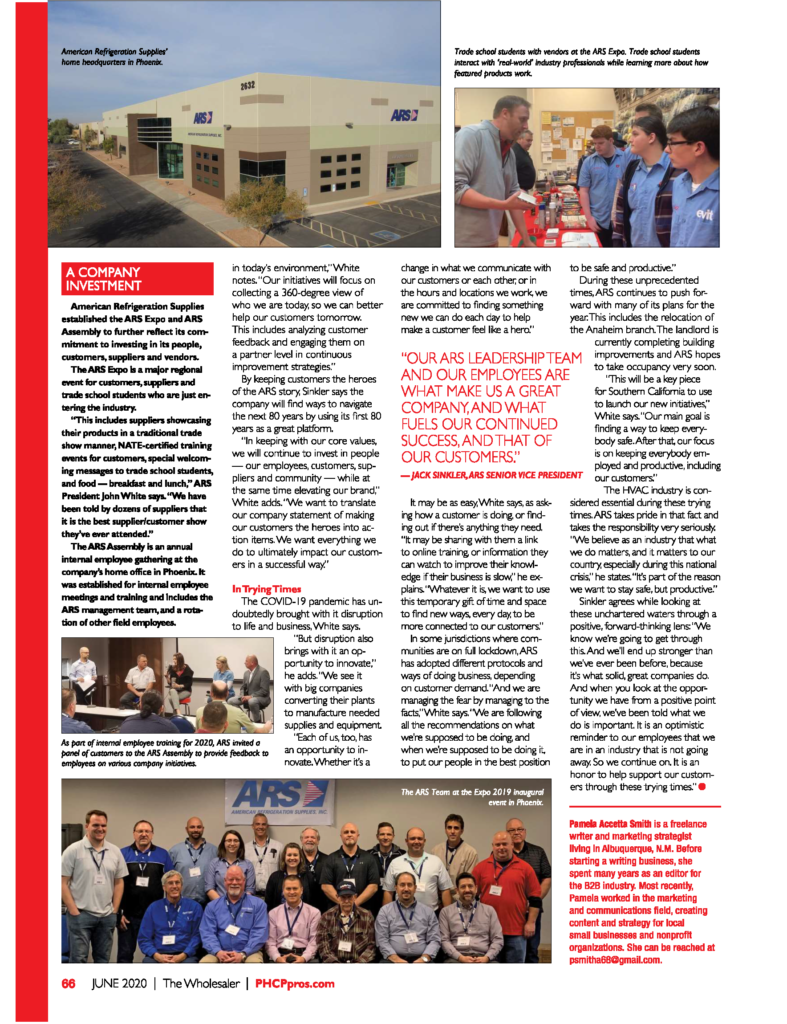Wholesaler magazine recently featured Kitchell’s wholly-owned subsidiary American Refrigeration Supplies and its milestone 80th anniversary. During Kitchell’s 50th anniversary in 2000, Founder Sam Kitchell commented that acquiring ARS was one of the smartest investments he ever made on behalf of the company. Link to full article: ARS Feature June TW 2020 FINAL.
Archives
Create a Culture of Engagement Rather Than Compliance
Originally authored by Andy Platt, Project Manager at Kitchell
Today, everyone has to do more with less. People are spread thin. In our industry, negotiated work and robust staffing have given way to hard-bid jobs with bare bones crews. We have to do more with less as margins are tighter and days are longer than ever before. This means it is critical for us to be highly motivating leaders equipped to create teams that will go the extra mile. And nowhere is this more important than in the area of safety.
Taking a page from the battlefield
In the movie Braveheart, warrior William Wallace inspires a group of ordinary people to do things they would have never dreamed of, to literally fight for their own sovereignty. He engages and empowers them. He shows them they have a valuable place in the common cause, while reinforcing the importance of their individual independence. This is almost impossible to do without passion and a true conviction that everyone matters. Starting with this premise, once someone knows they genuinely matter to the team, they will be more likely to give all they can. Instead of fighting against the current, they will give momentum to productivity, problem solving, continuous improvement, and the overall good of the project. A simple synergy will occur with this dynamic, where the success of each individual worker, each trade partner, will organically, naturally contribute to the overall success of the project and team.
“Same old, same old” is over
Construction is known for salty superintendents who work for hard-nosed contractors, giving orders to subcontractors who take the abuse because that’s the way it’s always been. In today’s business environment, workers need to trust that leadership is genuinely and proactively concerned for their well-being. One definition of engagement is “the act or state of interlocking.” Creating an environment of engagement is both art and science. Collaboration is one key to obtaining a truly “engaged” culture. Another main contributor to fostering engagement is to help your team develop an understanding that each of them are leaders, and they have an impact on their environment. This is the case even if they don’t know it yet. An effective leader will help them realize that proactively being part of the planning and decision process will lead to better execution of work, ownership of said work and effective improvements made in real time.
All for one and one for all
A group of engaged workers understands that looking out for each other is important. It is said in the proverb, “A person standing alone can be attacked and defeated, but two can stand back-to-back and conquer. Three are even better, for a triple-braided cord is not easily broken.” ECC 4:12.
Kitchell has a “world class” safety culture. This requires an environment where people are not just going through the motions, but are making decisions knowing they can make an impact. People will participate and engage in that culture so that every decision is made with the highest regard for safety. By its very definition, compliance is the result of someone forcing us to do something. We will likely only behave in the desired manner while someone is there to enforce it. In contrast, we willingly engage in something because we see the value in it. The keys to building a successful alliance of an engaged team are communication, passion, trust, and humility.
We need to remember that being in a hurry, taking a short cut, may save a few dollars in the short term, but could be very costly, or fatal, in the long run. The key is getting workers to realize that they can have “ownership” of their safety and the health and safety of those around them.
Everyone puts their name on their hard hart, because everyone has a name. People are more apt to have connection and care for someone who knows their name.
We may not be able to control all of the circumstances on the jobsite, but we can choose to be vocal and resolutely only participate in activities that are planned and executed with the highest regard for safety. I’m suggesting we emulate William Wallace. Become a safety warrior. Show others your passion, give them opportunities to engage and lead for themselves.
By living out our passion for doing the right thing, people will be drawn to our way of doing business.


